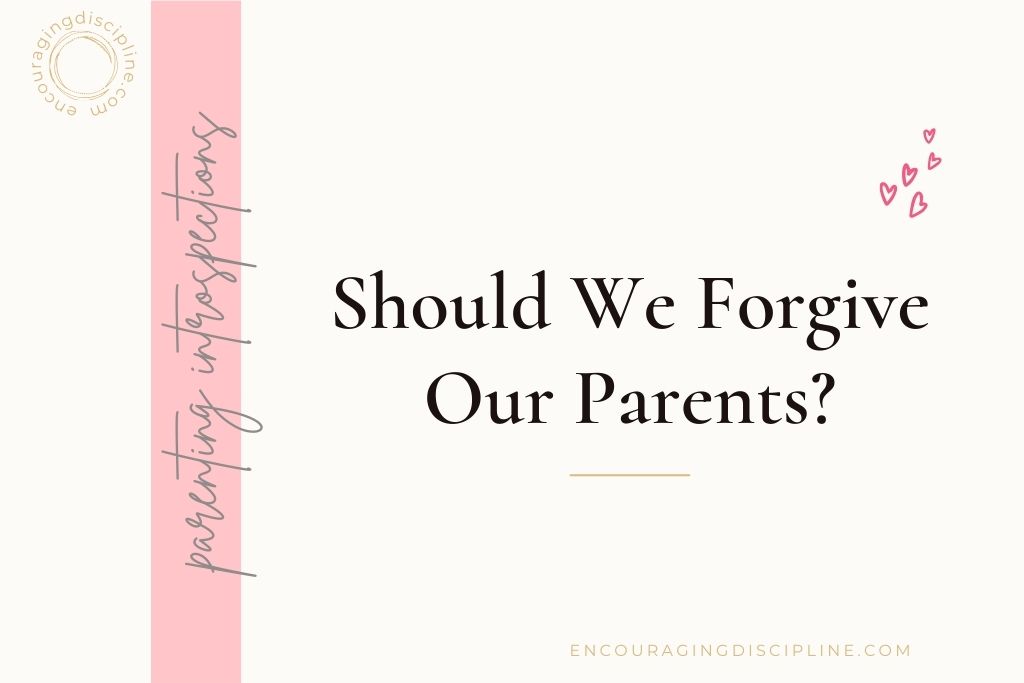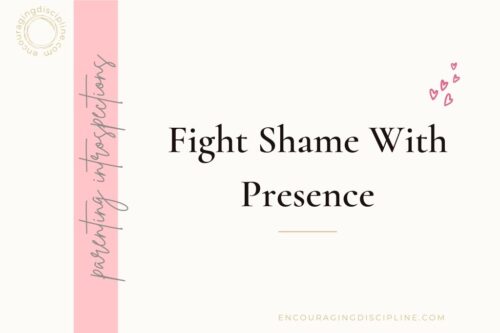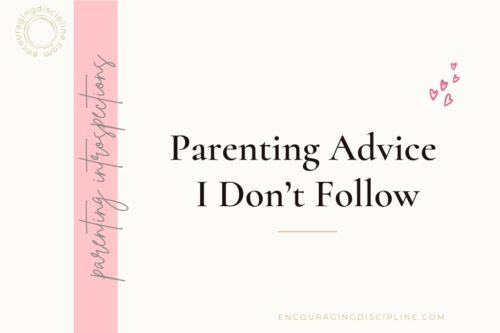Should We Forgive Our Parents?
The question “Should we forgive our parents” is a deeply personal one. Although we like one-size-fits-all answers and quick fixes, this is a question that finds its answer within each of us.
We all desire a happy relationship with our parents, but it can be hard to achieve it in an authentic way. How can we rebuild a strained relationship while also respecting our needs? How do we move on without denying our inner child wounds?
Whenever I am in a group of parents or coaching one-on-one, and we get to a point where we talk about the mistakes that our parents made which hurt us and created triggers and unhealthy beliefs in us, everybody seems to get very uncomfortable. They rush to say “But, you know, they did the best they could with the tools that they had at the time.” This is a true and valid statement. But I sense a fear in those who utter this statement. As if they can’t allow themselves to say or think anything bad about their parents. And I have done the same many times.
Our hastiness to forgive is determined by our childhood and cultural conditioning.
I suspect this fear of holding our parents in a space of responsibility, even briefly, comes in part from our childhood when, as children, we idealized our caregivers for the sake of attachment. If our parents did anything to hurt us, the only choice we had was to devalue ourselves instead of making them responsible for their actions.
It could also come from our cultural conditioning which expects children to love and respect their parents and elders unconditionally and judges children who do otherwise as ungrateful and unworthy.
Then, as a general rule, we seem to have no tolerance for “negative thinking” or “negative behavior”. There is a stigma in our culture for this kind of attitude and none of us want to be labeled “negative.”
At the same time, we seem to have raised to the position of high virtue certain desirable emotions and attitudes such as forgiveness, kindness, altruism, and love. In our black-and-white view of life, we can’t seem to reconcile the two parts of human nature, the existence of both sides of the coin. Although in theory, we accept the coexistence of yin and yang, darkness and light, we can’t seem to integrate the so-called “negative” and “positive” emotions of the human experience.
Then there’s the research on anger, resentment, and rumination, which points to a strong association between negative thinking and feelings and negative outcomes on our physical and mental health. People who hold on to these “negative feelings” have higher levels of anxiety, depression, and generally an increased sympathetic reactivity.
On the flip side, forgiveness seems to correlate with better emotional and physical outcomes. People who forgive their wrongdoers have better immune systems and fewer cardiovascular problems. People who forgive also have higher levels of trust, hope, and self-esteem, because they feel good about themselves for being so emotionally generous.
I wonder how these results are affected by the cultural beliefs that we grow up in.
However, one thing concerns me. As I mentioned in the beginning, when adult parents talk about the mistakes that their own parents made, there is an urgency with which they absolve their parents of all wrongs. The statement “they did the best they could with the tools that they had at the time” enters the conversation too quickly.
Let me explain why I think this is a problem.
We know that if we want our children to feel empathy for their siblings after a conflict, they first have to feel fully heard. We have to begin by giving them our attention and nonjudgmental curiosity, empathy, and understanding. Only after they feel held in our loving acceptance can they find the emotional generosity to turn to their sibling and offer their openness for repair. Each part has to feel fully heard before they can extend their attention to the other person involved.
When we rush to absolve our parents of all their mistakes, we don’t offer ourselves this kind of listening and acceptance. We have to make space for both parts of us: the part that was hurt by our parents or other adults in our past, and the part that can forgive.
When we don’t allow the part of us that was hurt to speak and express all that it’s feeling, we turn our backs on our pain and suppress our emotions. We deny ourselves.
The expectation to be positive all the time is pervasive in our culture.
When I ask parents to make a list of attributes they want their children to have as adults, happiness is at the top of the list. We are obsessed with being happy.
Wanting ourselves and those we care about to be happy is not a bad thing in and of itself. It stems from a good intention. When we see someone suffering or crying, we try to help. When someone is sick, we go to their side. These are beautiful adaptations that we developed over millions of years as social beings living in a community. However, there is a reverse side to this. It also means that we don’t like to take on other people’s uncomfortable feelings and stay with the discomfort they cause us. This discomfort creates a sense of urgency in us which isn’t always helpful.
To bypass this sense of urgency we get when we pick up on someone’s emotional state, we can try to shift our perspective. Instead of interpreting the urge to help as “Oh, this is bad, I have to stop it promptly”, we can understand it as “This is a signal that this person needs my help right now.” And the help can come in the shape of sometimes doing something for them, such as maybe cooking a meal for them. Or other times it can mean simply being with them, sitting with them, holding them, listening to them. Doing the latter can be hard. The “problem” doesn’t go away quickly. Because emotions take longer to flow through us, we have to share the discomfort of the person next to us. When we can stay close to someone through their pain, we are not only focusing on relieving our own discomfort. We make it about them. And this is the highest and most generous form of love that we can give to someone.
When we are in a quick-fix mode, we are walking away from the demands of human relationships and dealing with them superficially. True and deep connection with other people is only created through being together emotionally.
So the next time you sense the urgency to proclaim forgiveness for your parents’ mistakes, I invite you to pause and allow the part of you that’s been hurt to speak to you. Listen to it with patience, curiosity, and kindness. Give it a full turn. Then, if you feel ready, you can turn to the side of you that wants to forgive. Only by doing this can you be fully connected to yourself.
Before you rush to forgive, I would invite you to pay attention to a few things:
1. Do you repeat yourself?
Do you notice yourself saying “I don’t blame them” or “They just did the best they could” often? If you do, it may be an indication that you are trying to convince yourself and others of the veracity of these statements. If you’ve really forgiven someone and you’re over it, you don’t need to say it over and over.
2. Is there a sense of urgency?
Another indication that you may not be ready to forgive is if you notice yourself rushing to say you don’t blame your parents. As I mentioned, this urgency is a good sign that you should pause and sit with your feelings. Listen to all parts of yourself that need to express something.
3. What is your body telling you?
Finally, try to observe how your body feels while you are thinking or talking about forgiving your parents. Is there any tension anywhere in your body? Or is your body fully relaxed? Do you have a feeling of peace, safety, and openness? Your body knows. Listen to it. If you notice any tension or contraction, pay attention to it and explore it slowly and fully.
Sometimes you are not ready to forgive your parents.
If you realize that you are not ready to forgive, that’s okay too. I would encourage you to have the courage to trust your inner wisdom. When we are not ready to forgive, it means that the hurt is not healed. The wound may be too great.
Researchers Julie Juola Exline and Roy Baumeister talk about forgiveness as having two parts or elements: an external (behavioral) and an internal (emotional) one. The external element is the decision to forgive or the act of forgiveness. The internal element implies a release and coming to terms with what happened. These two parts have to work together. When we decide to forgive, but emotionally we are still stuck in pain, the act of forgiveness is actually more harmful than helpful. That’s when we can get stuck in negative rumination and resentment.
To be authentic, our thoughts, feelings, and actions have to align. And that means that we have to resist the urge to give in to the pressures of our culture and fears and forgive quickly and automatically. And we have to allow for the emotional healing to complete before we decide to forgive.
So should you forgive your parents for the hurt they’ve caused you?
It depends. I believe the answer can be found in your stillness.
There’s no doubt that getting to a state of true forgiveness benefits us. But the way to get there is not always short and easy. It can take years of hard, loving work. It’s not a “fake it till you make it” type of situation.
We have to do it for ourselves, not for those who hurt us.
It takes listening to our bodies and inner wisdom. We can only get to forgiveness if we give our wounds the time, space, and attention to heal. So prioritize yourself and your own healing. And don’t put a deadline on it. We are all different, our wounds are different, and we all heal in our own time.
And then there are behaviors so horrific that can never be forgiven. Or sometimes our parents persist in their unhealthy behaviors toward us that continue to harm us or interfere with our lives. That’s when self-compassion is vital to help you accept that what happened or is happening is not your fault. You can reassess how you can take care of yourself in this relationship, and move on in a way that respects your authenticity and well-being.
You may have noticed that I talked about behaviors being horrific, not the person. It’s important to separate the person from the behavior. We can have understanding and compassion for our parents and still not forgive their harmful behavior. We have to work on integrating the two.







